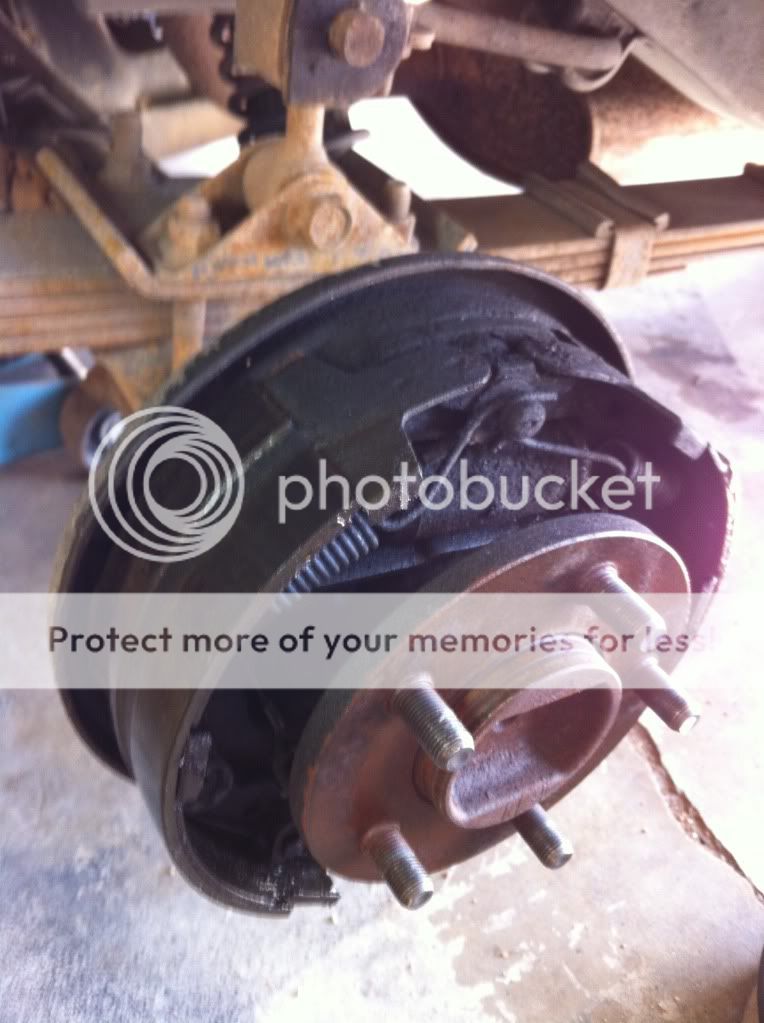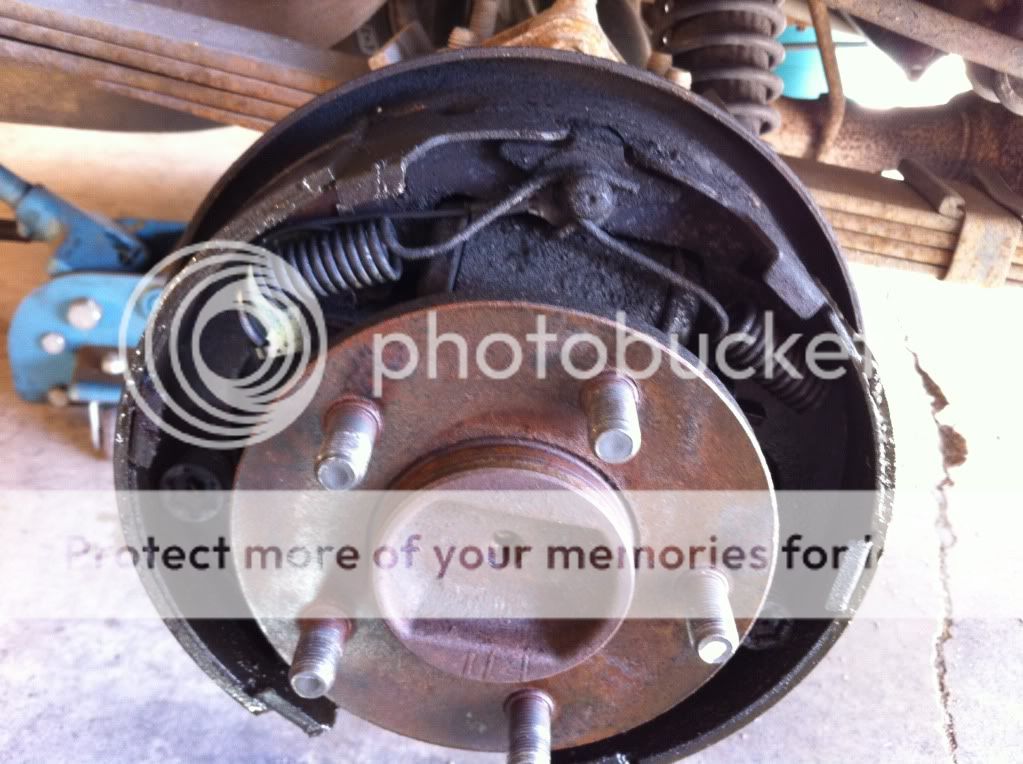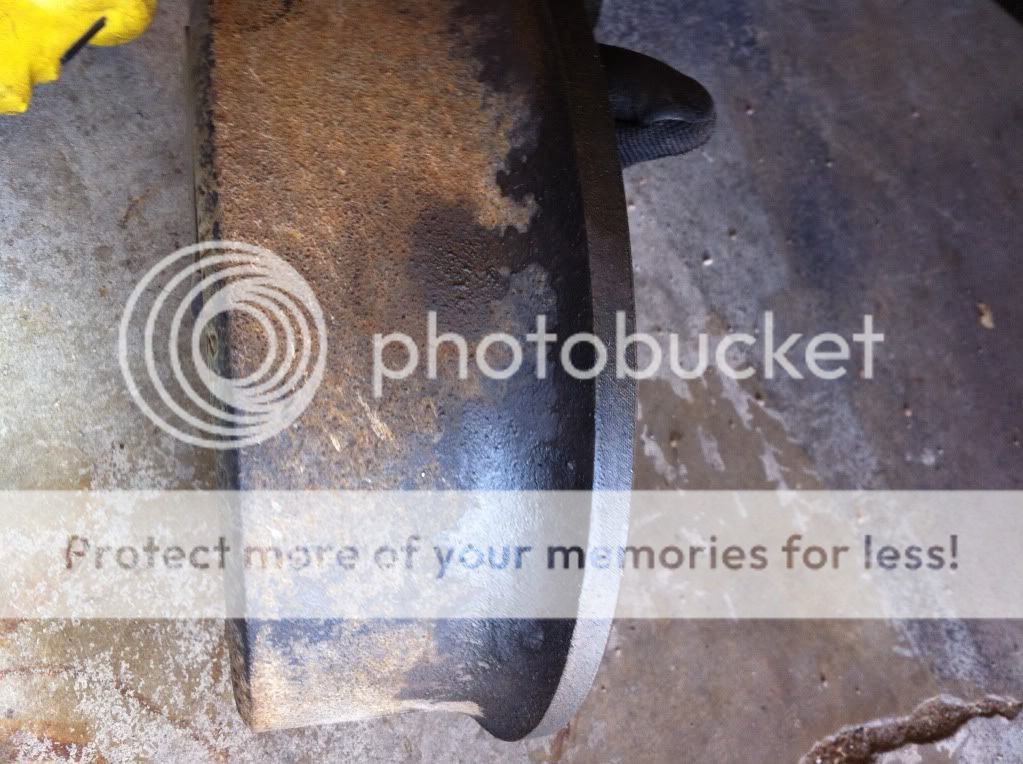OK... so I've been getting a bit of a squeal f/my rear passenger drum brake on my '01 XJ. I assumed it could be time to replace the shoes (have 124K miles on her) and when I pulled the drum on my passenger side wheel and the drum, it was saturated/wet w/fluid. Not sure what kind of fluid or where it came from as it was so dirty. I'm a newbie on drums and wondered if it could be a cylinder leaking or if perhaps an axle seal leaking? I didn't notice any fluid coming f/where the axle is, but that's not to say it's not the culprit.
What do you think, is this a potential wreck waiting to happen or what???
Any suggestions? I'm wanting to upgrade to disks on the rear, but at this very time I'm not in a place to do that financially. I'd just like to fix this and then upgrade down the road.
Here's some pics...


inside of drum

outside of drum edge... notice the wet area all around the drum

drivers side drum for reference. nice and dry.

What do you think, is this a potential wreck waiting to happen or what???
Any suggestions? I'm wanting to upgrade to disks on the rear, but at this very time I'm not in a place to do that financially. I'd just like to fix this and then upgrade down the road.
Here's some pics...


inside of drum

outside of drum edge... notice the wet area all around the drum

drivers side drum for reference. nice and dry.

